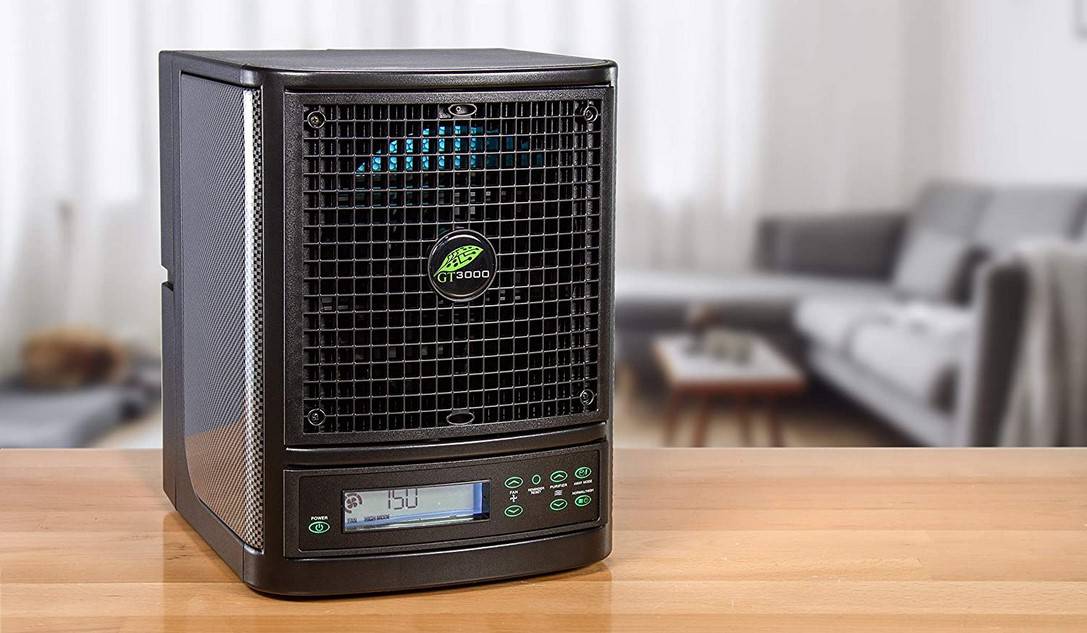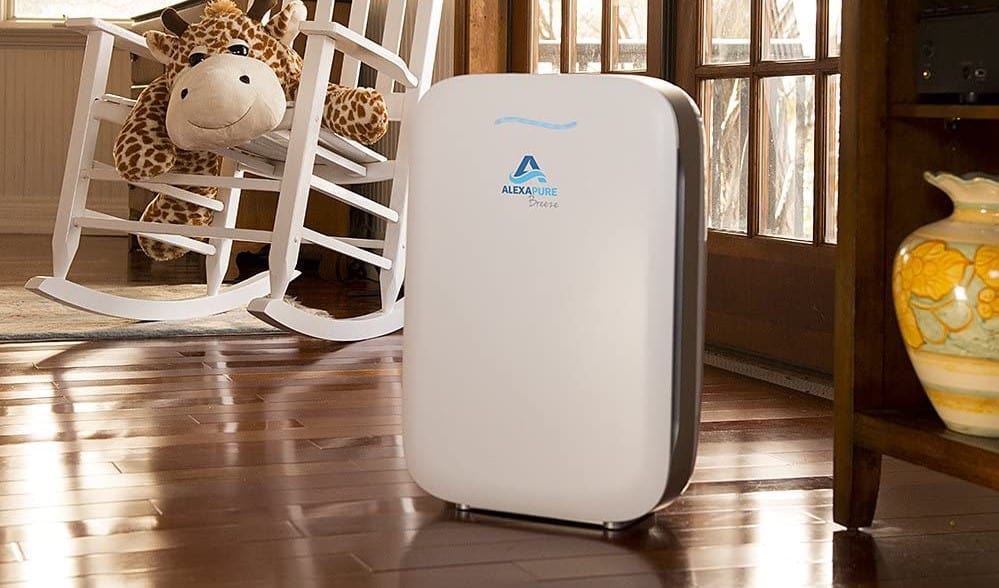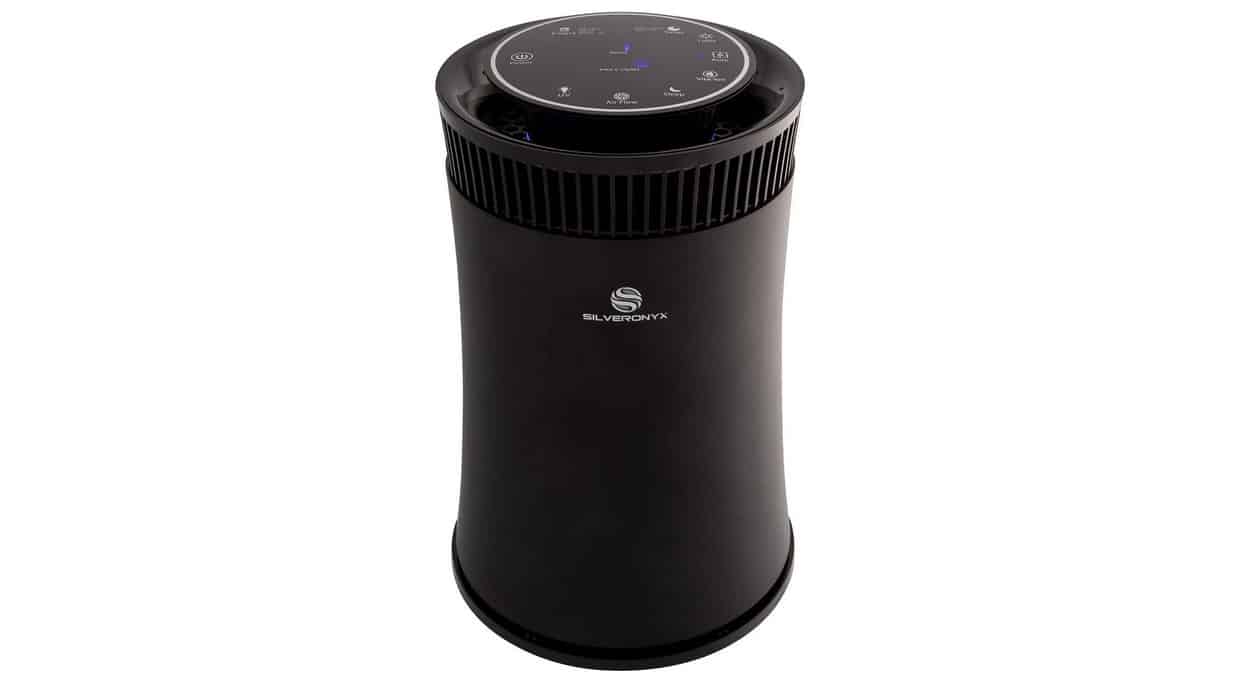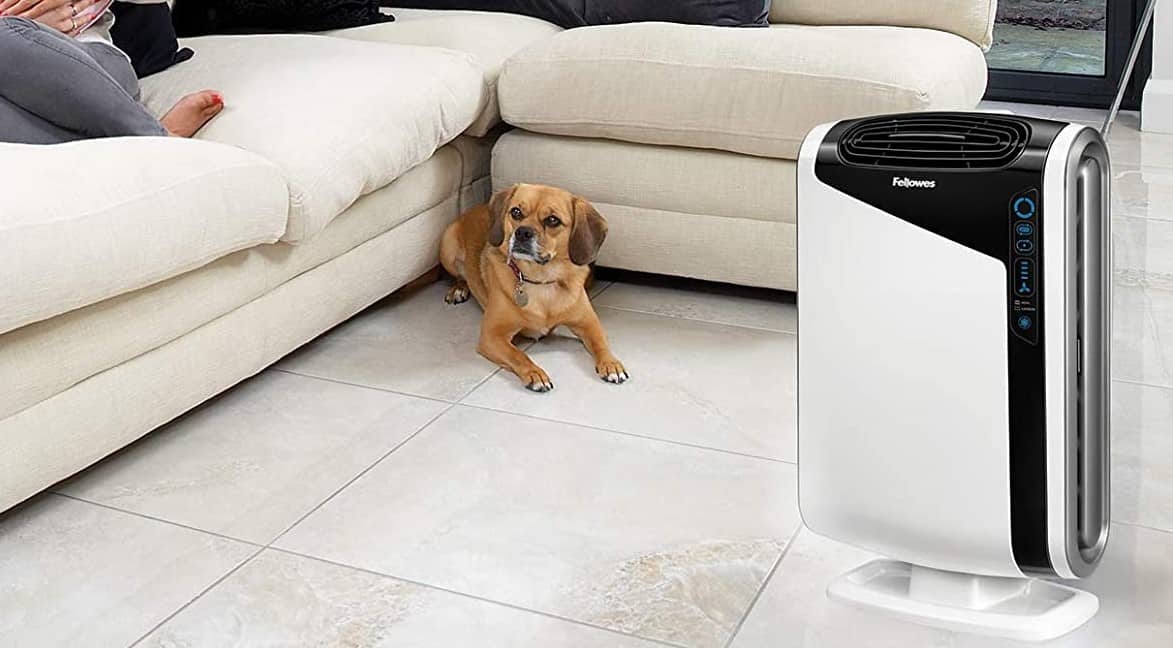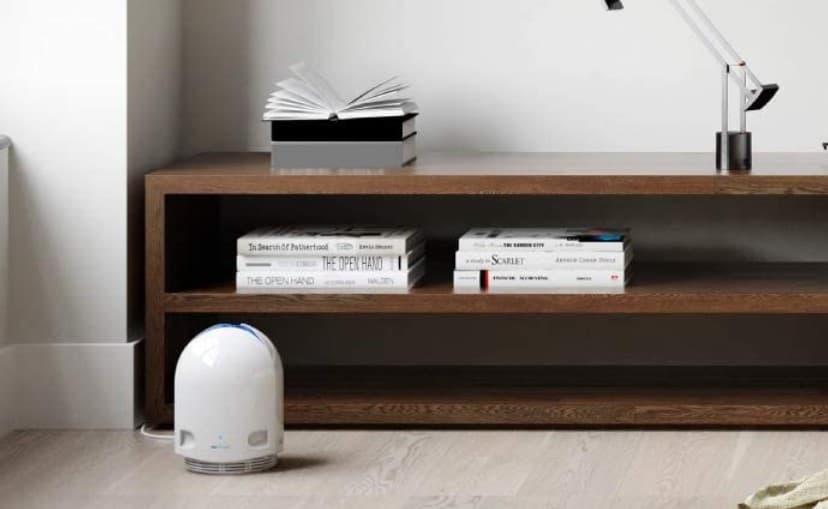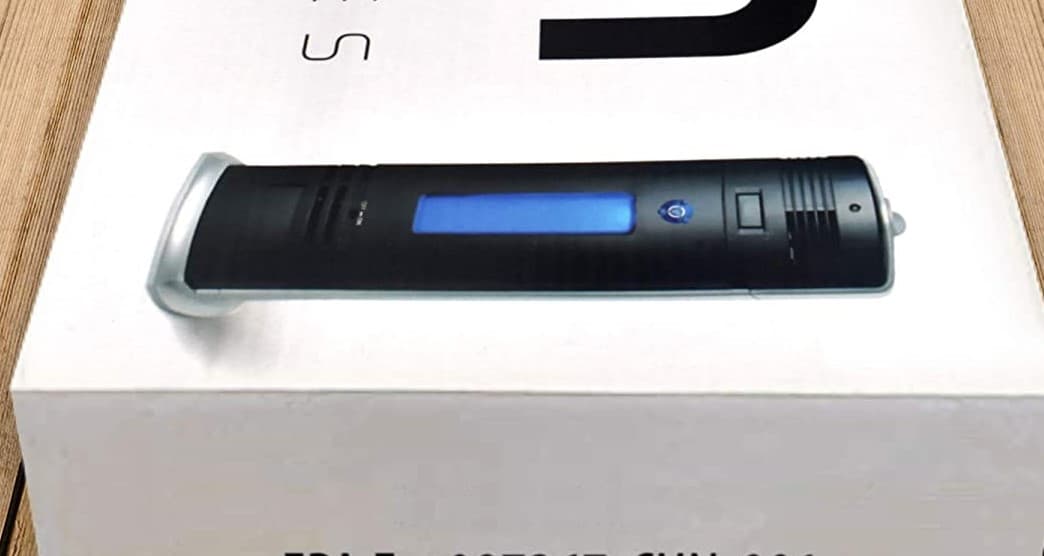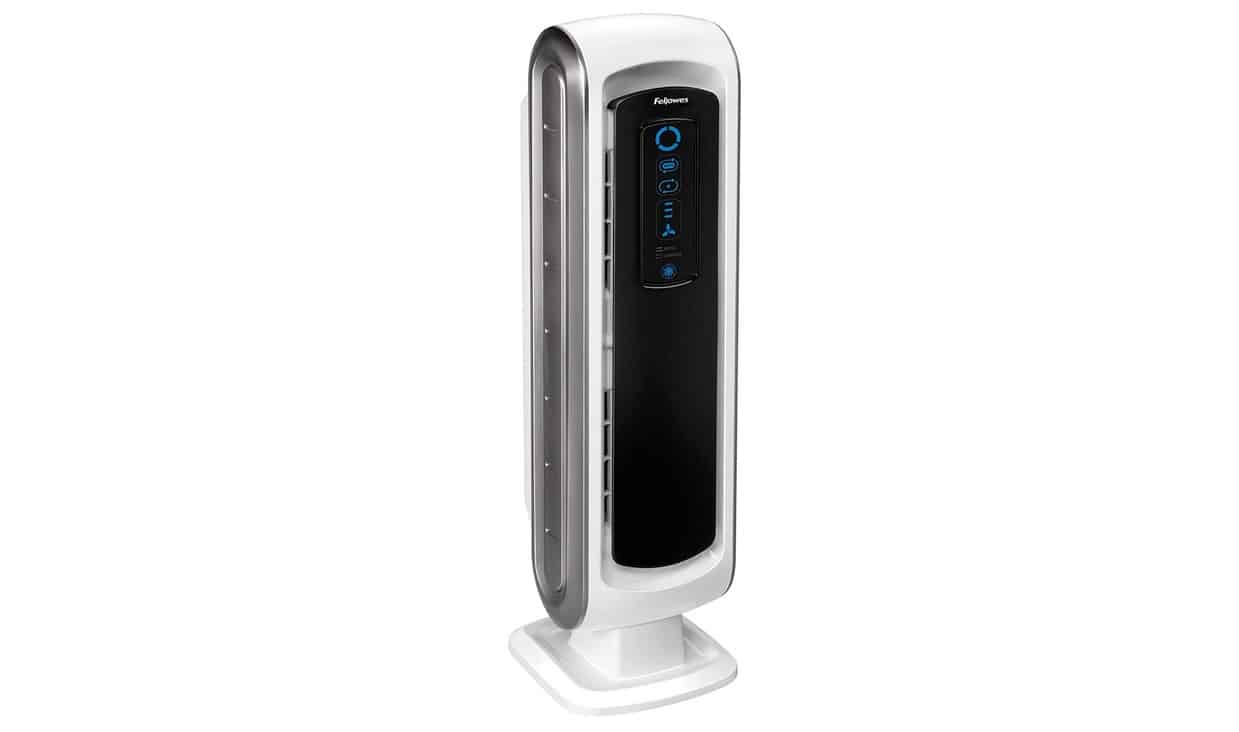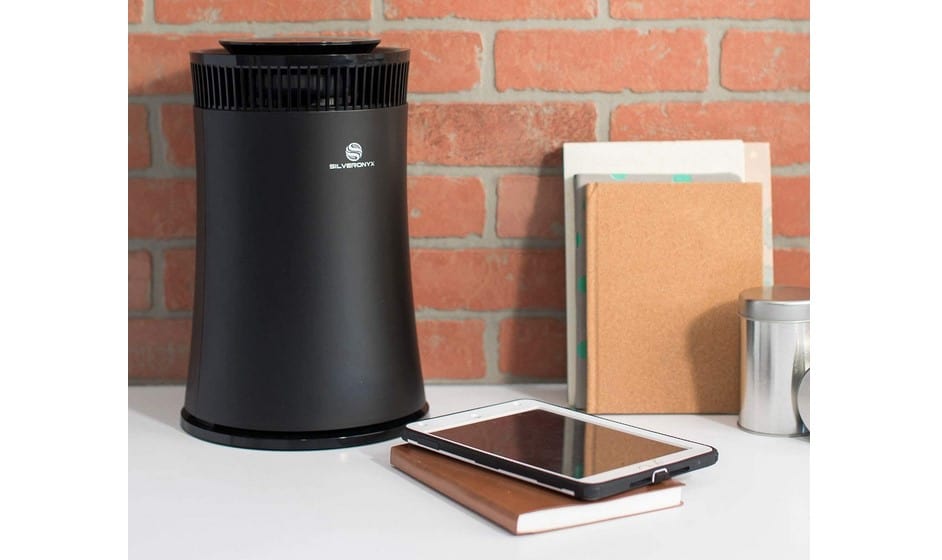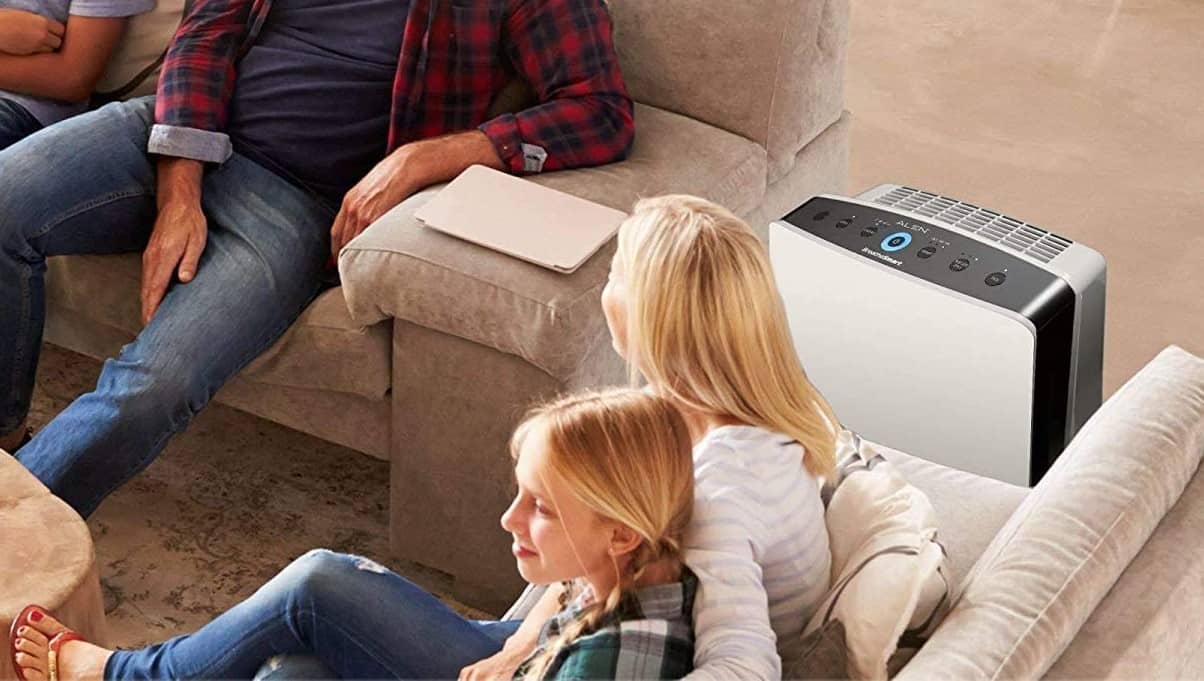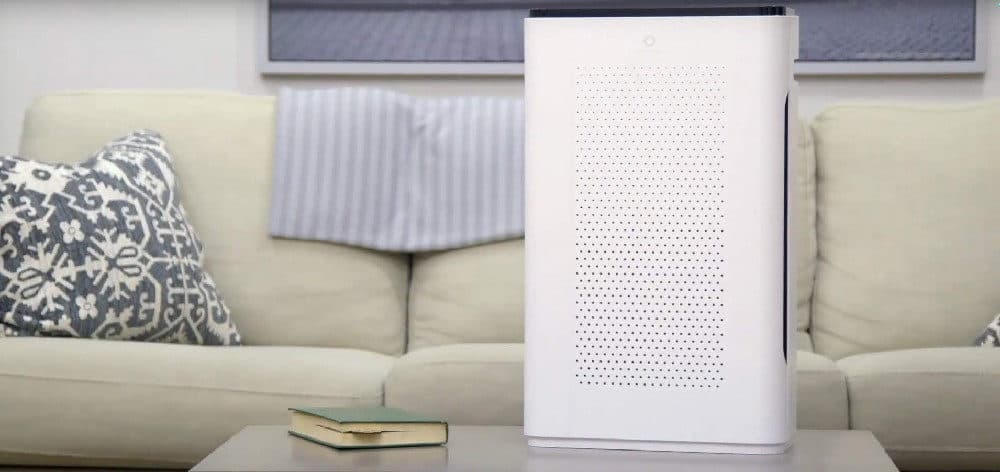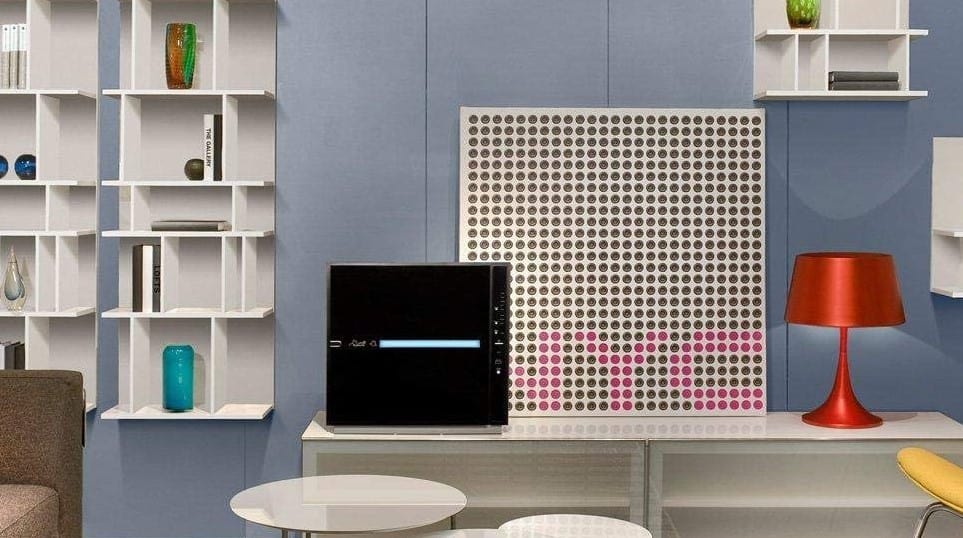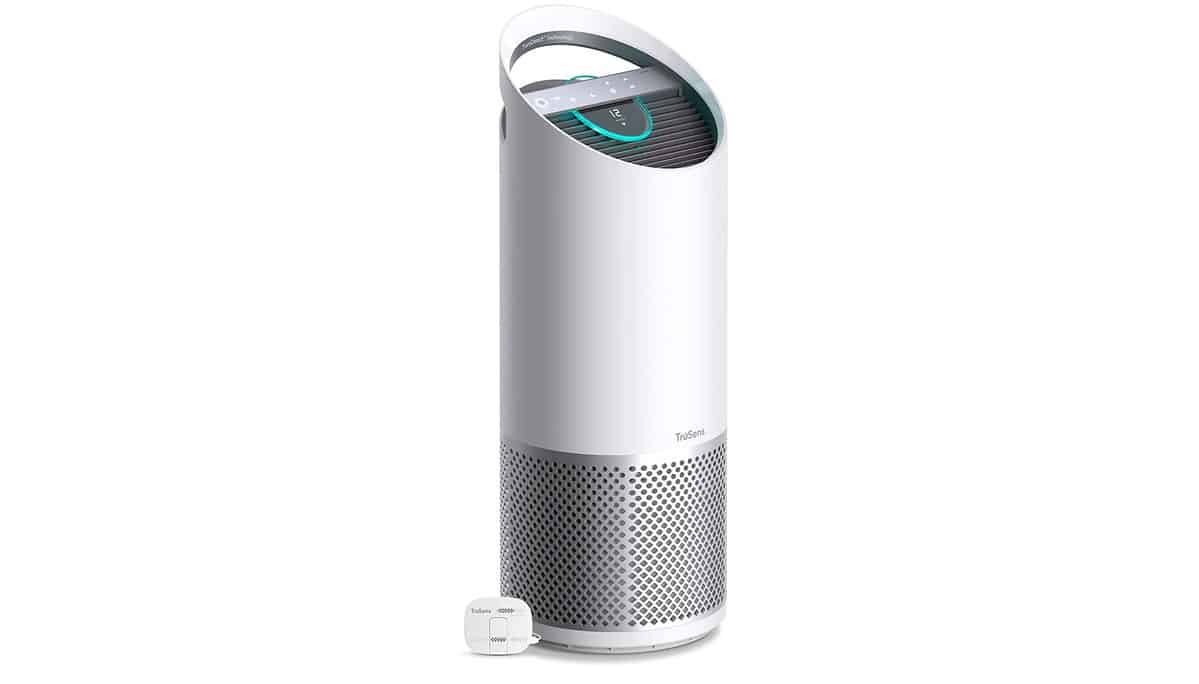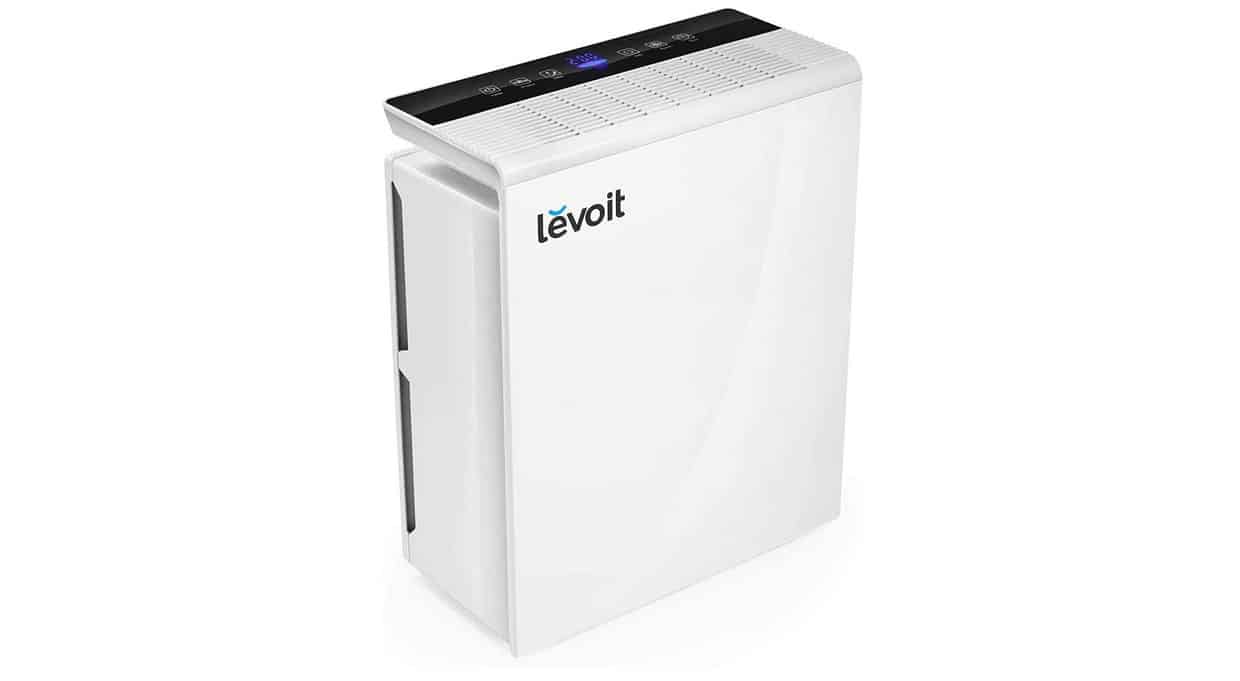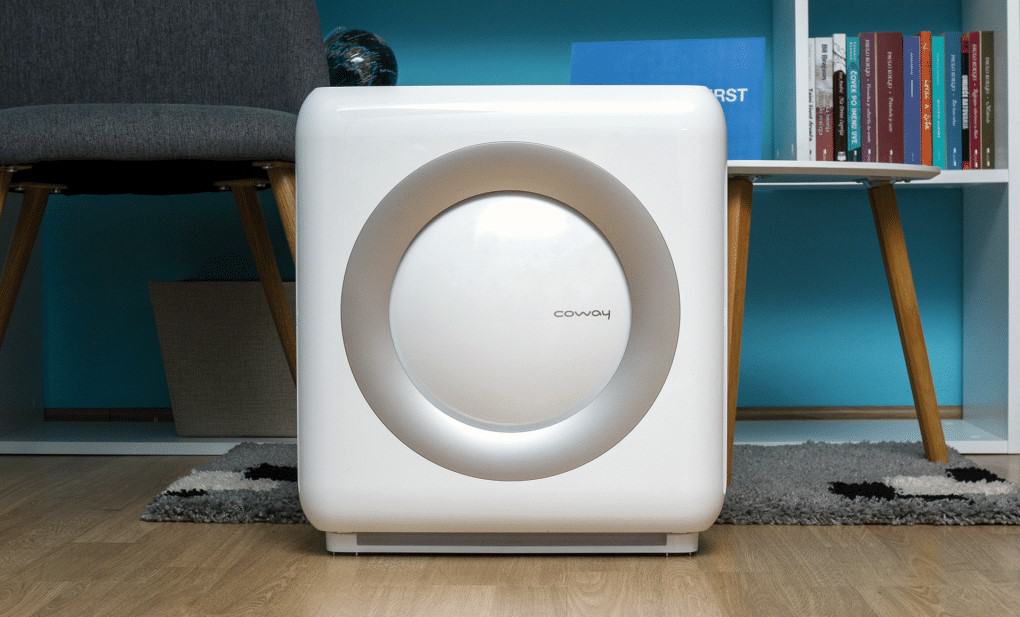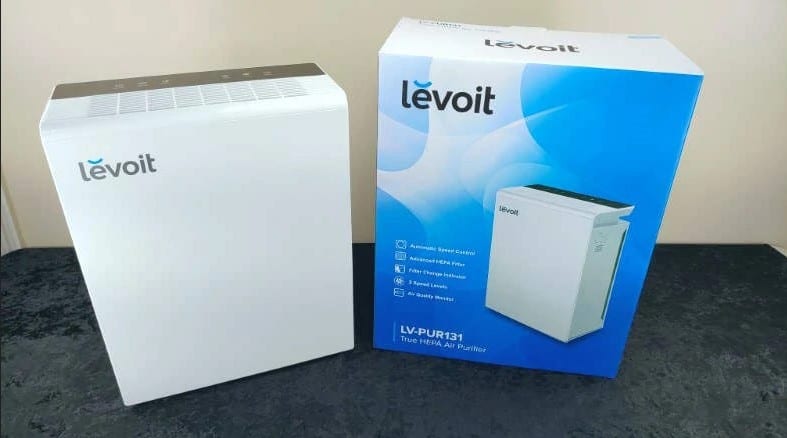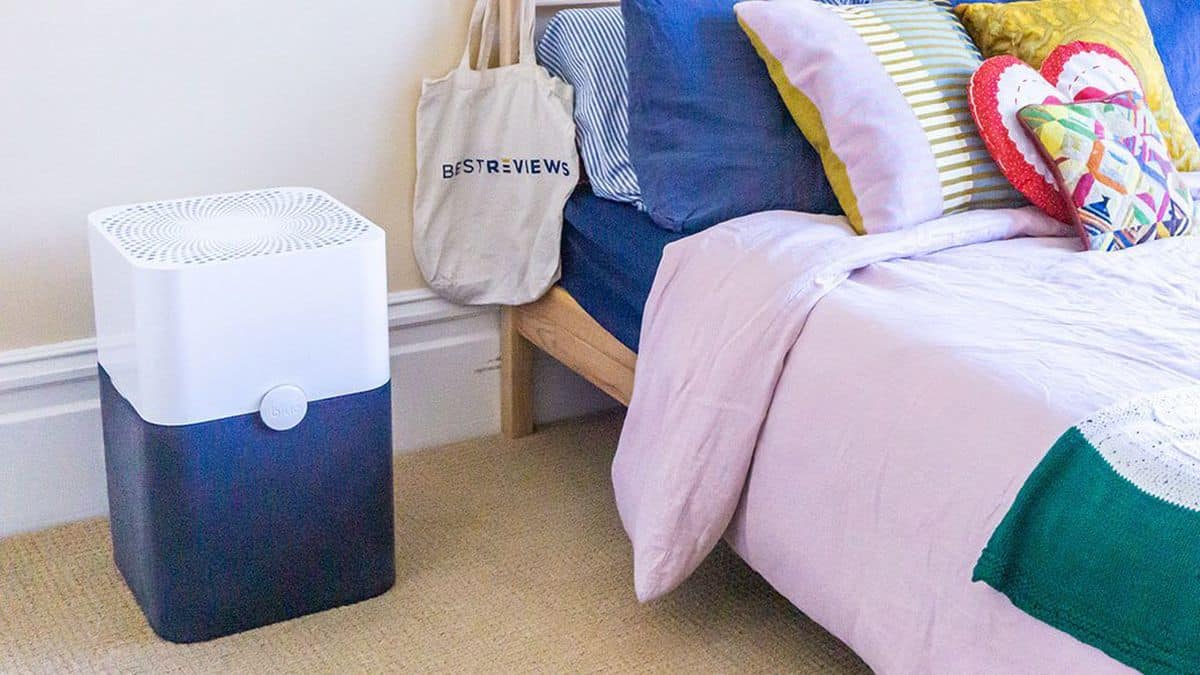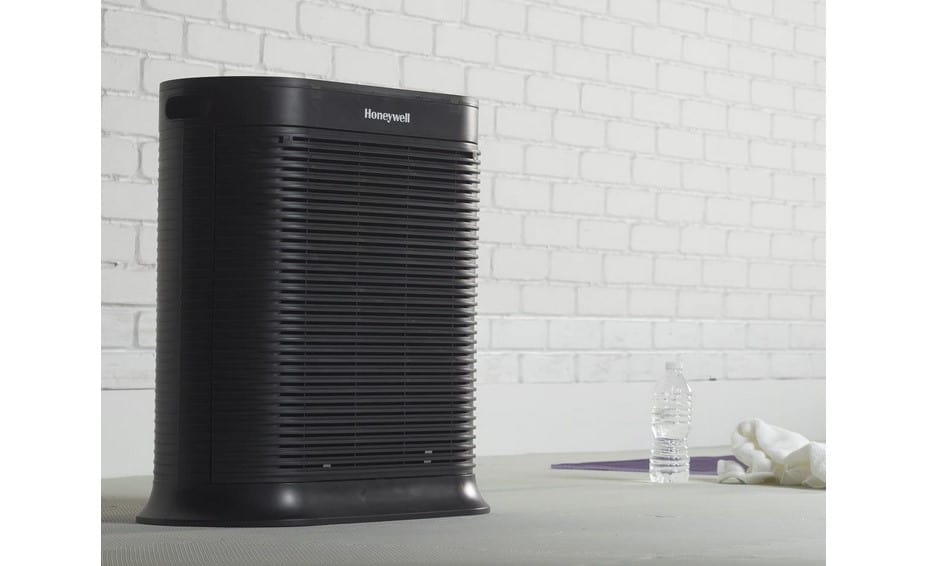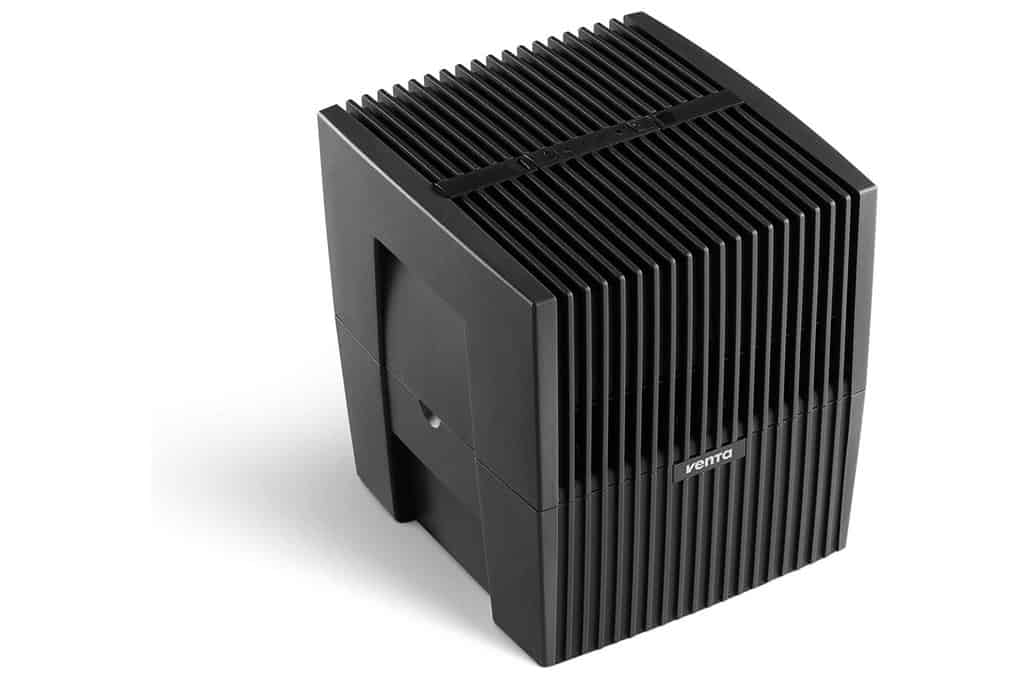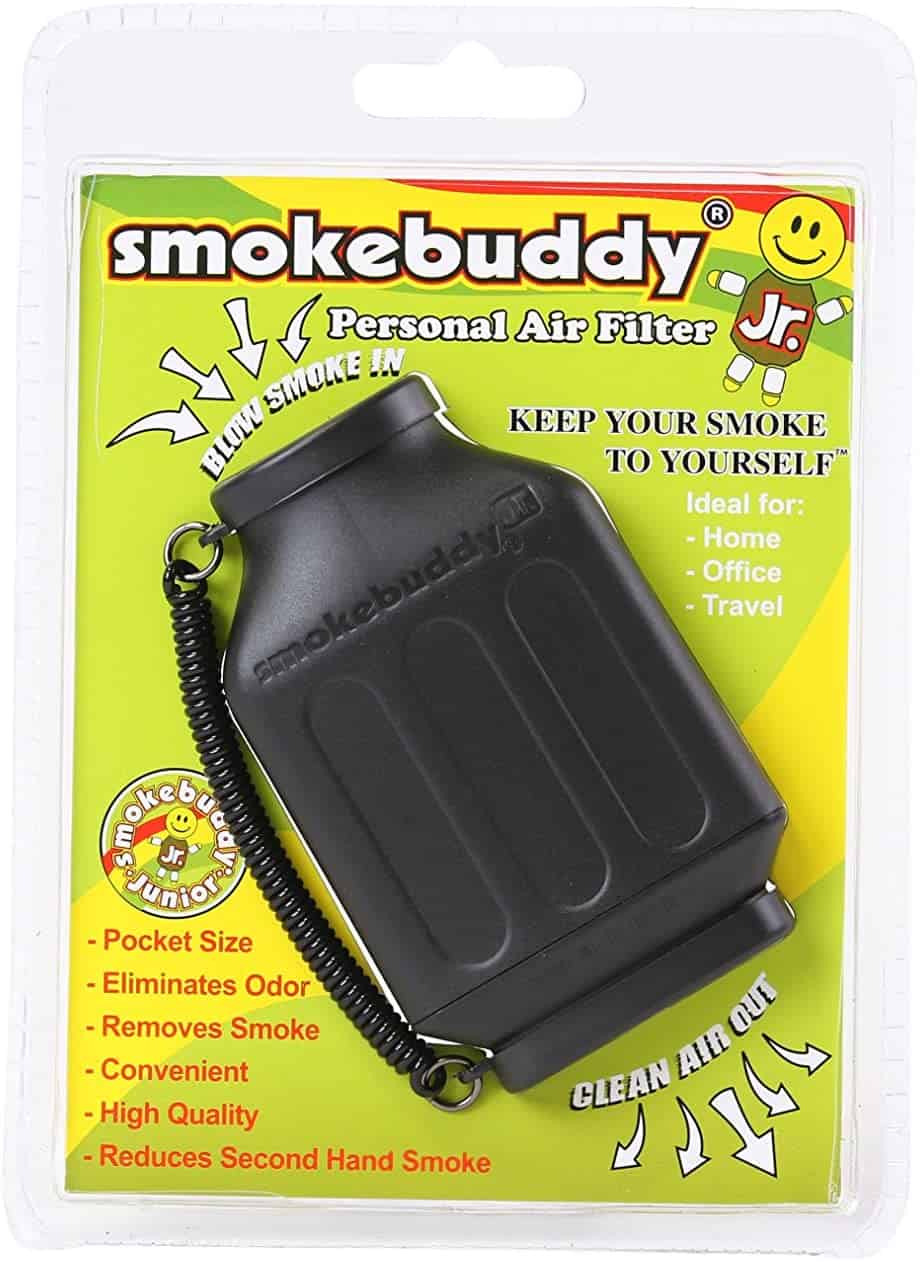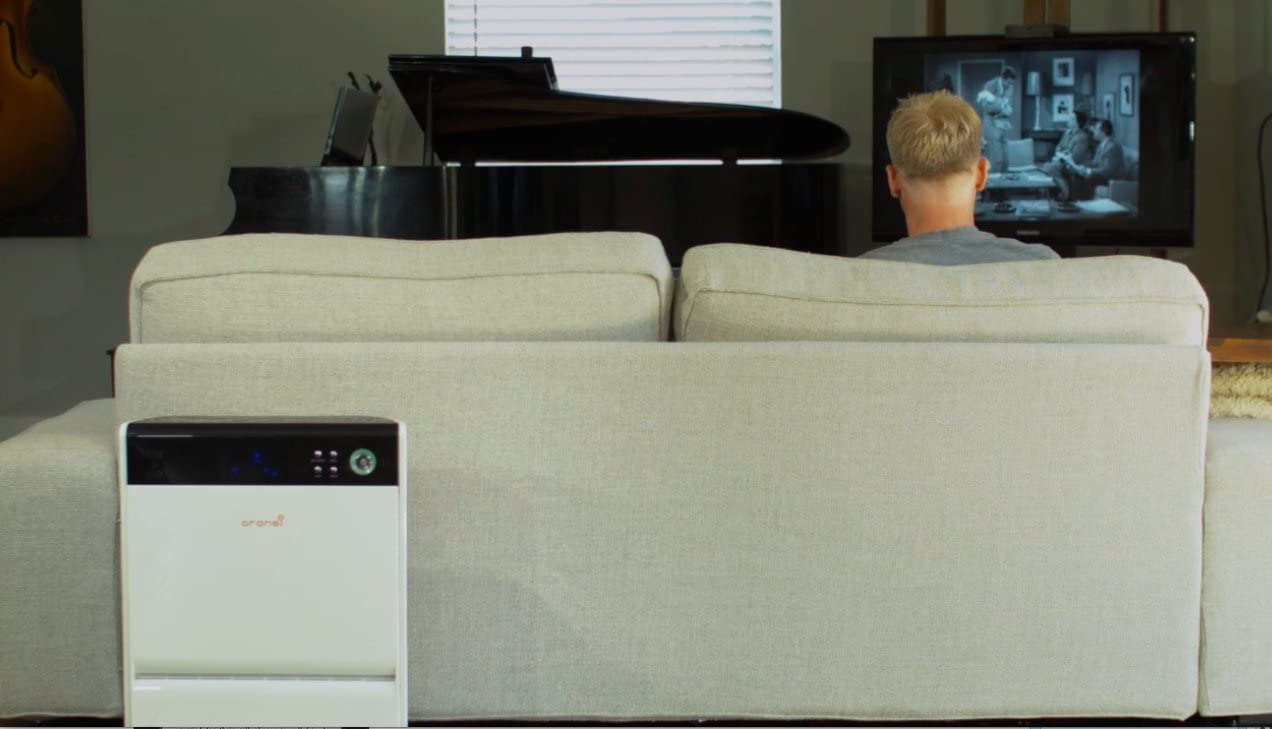If you are looking around for a new or replacement air purifier, you may have one question on your mind. What is the energy usage of an air purifier? And what are some of the top-rated air purifiers on the market?
Before looking at devices, you’ll want to know how to maintain a purifier. For instance, knowing what a red light is on an air purifier will resolve any major issues. Plus, can you put disinfectant in an air purifier? And, what is a pre-filter in an air purifier? All these questions can be answered with our info content. We are here to provide some much-needed answers.
KEY TAKEAWAYS:
- Air purifiers need energy to operate, which typically comes in the form of electricity.
- A standard air purifier uses around 550 kilowatt-hours of energy per year, which is the same as a refrigerator.
- To minimize an air purifier’s energy consumption, use it on a low setting or refrain from operating it continuously.
Do Air Purifiers Use Energy?
Air purifiers do use energy as part of their general operation. Most air purifiers need to be plugged into a power outlet to work. Even personal air purifiers that are worn around the neck need energy, as they typically include a rechargeable battery. On the other hand, HEPA filters are very effective in cleaning odors, allergens, and bacteria particles. This means that different air purifier models have different energy needs. For example, you can check out what is the difference between Mooka and Koios air purifiers.
Insider Tip
Most air purifiers need to be plugged into a power outlet to work.
What is the Energy Usage of an Air Purifier?
According to energy regulation firm ENERGY STAR, the average air purifier consumes 550 kilowatt-hours per year in electricity, which places it in line with a standard refrigerator or a desktop computer.
Tips to Minimize Air Purifier Energy Use
If you are looking to save on your monthly energy bill, there are some steps you can take when it comes to the use of an air purifier.
Keep it on a Low Setting
If you are running an air purifier on its highest setting, it will draw more energy than if it has been left to run at one of its lower settings. Perform some experiments to find the perfect setting for your needs that balances air purification and energy consumption. You may find the rooms in your home do not need more than one air purifier running at its lowest setting. Others may need the air purifier to run in a medium setting.
Insider Tip
According to energy regulation firm ENERGY STAR, the average air purifier consumes 550 kilowatt-hours per year in electricity, which places it in line with a standard refrigerator or a desktop computer.
Only Use When Necessary
Modern air purifiers are built with durability and longevity in mind and it is perfectly fine to run them continuously. However, using them all of the time will impact their overall energy consumption. Instead of relying on an air purifier 24/7, you can try using them to “spot clean” the air when necessary. In other words, turn on the air purifier when you have noticed an odd smell, when there is smoke coming from the outdoors, or when you are experiencing an increase in allergy-related symptoms.
Keep Windows and Doors Closed
To minimize energy consumption, help the air purifier by keeping windows and doors closed. An air purifier will have to work much harder to filter out a large amount of air coming from other rooms or from the outside. You may have wondered what the white powder on the floor by your air purifier is. That is a byproduct of filtration, which means your purifier is working well.
Warning
If you are running an air purifier on its highest setting, it will draw more energy than if it has been left to run one of its lower settings.
F.A.Q.S
Are low-cost air purifiers effective?
Sure they are. Many budget-friendly air purifiers are extremely effective. Just pay attention to the brand, pertinent reviews, and any relevant data metrics. Try to steer away from purchasing an air purifier from a disreputable company.
Are air purifiers effective against viruses?
Air purifiers can be extremely effective against virus particles, depending on the type. HEPA filters can trap and capture viruses, but not kill them. UV air purifiers will kill germs, bacteria, and viruses.
How do air purifiers help buildings reopen?
Air purifiers can help building owners be certain that their space is free from nasty virus particles, such as the coronavirus.
STAT: In 2018, sales of portable air purifiers skyrocketed by about 1 million units, according to the trade publication HomeWorld Business. (source)

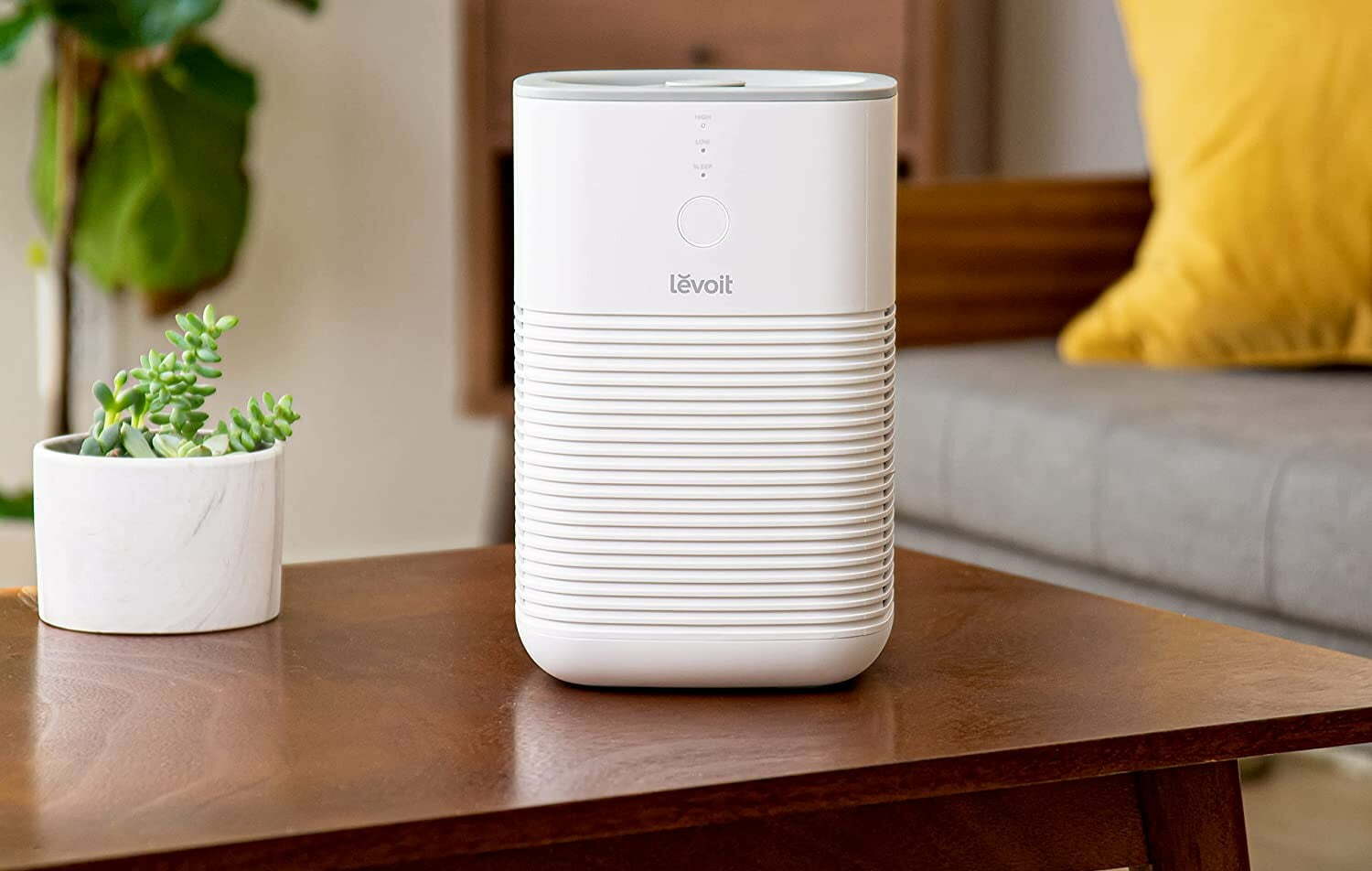













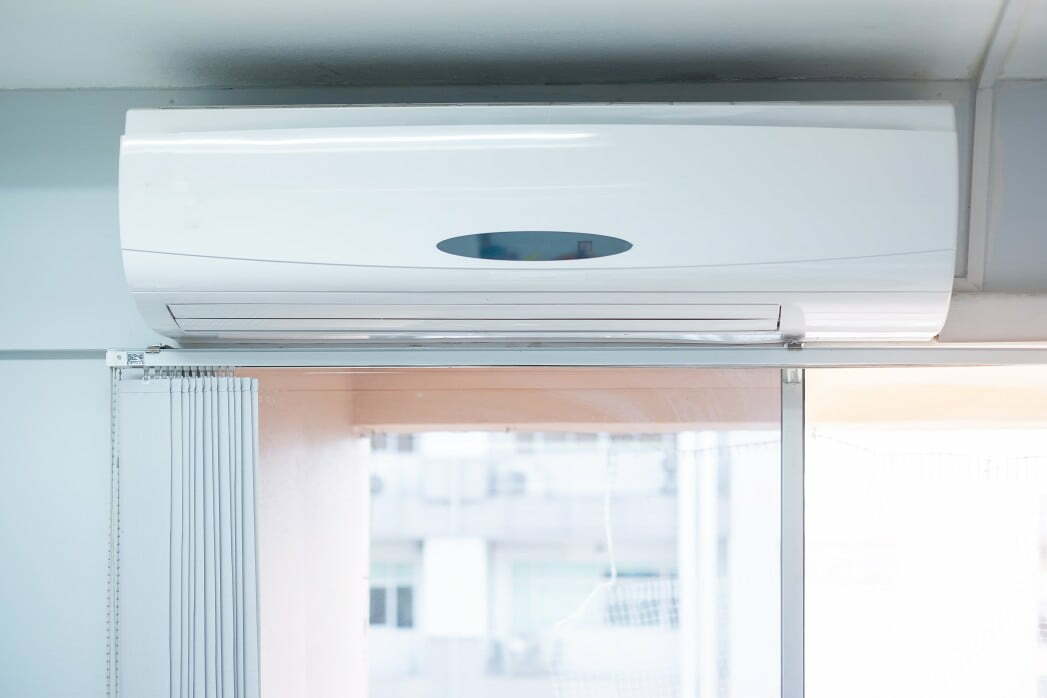
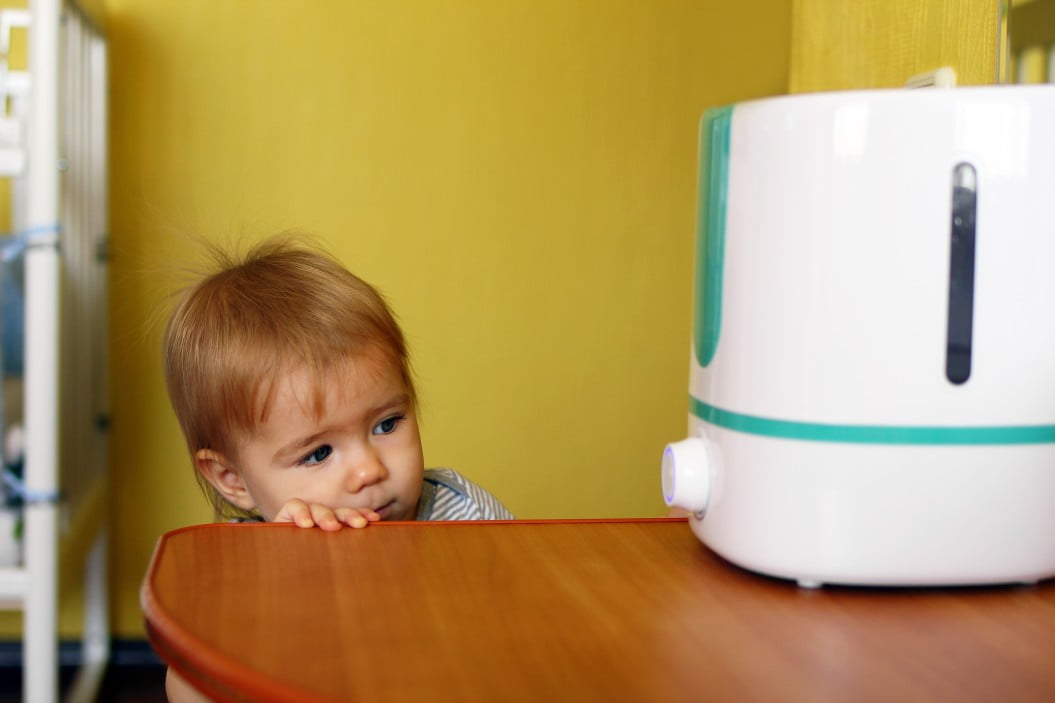
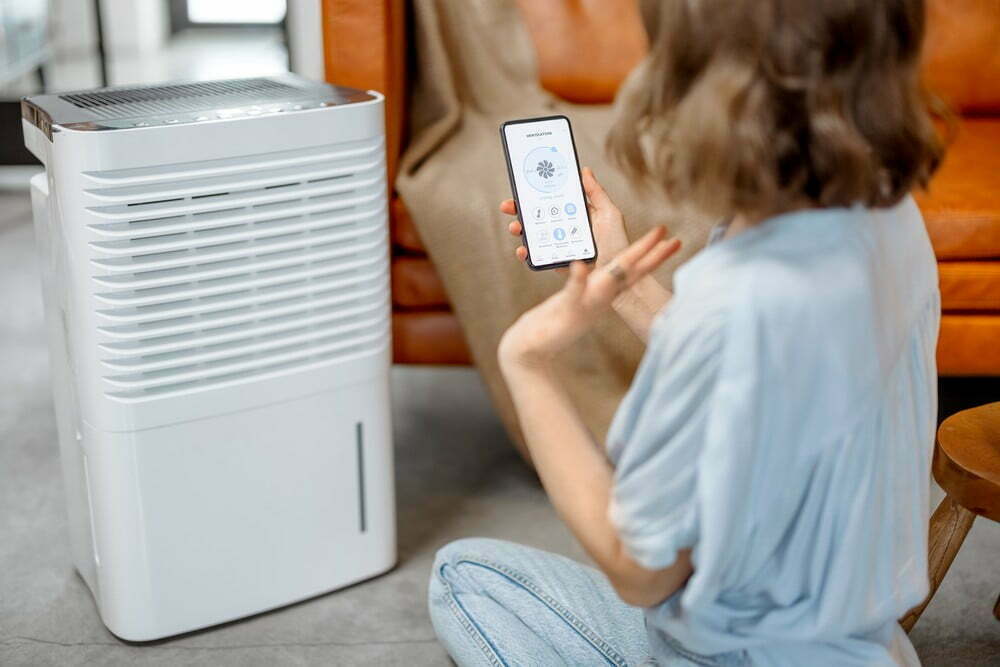
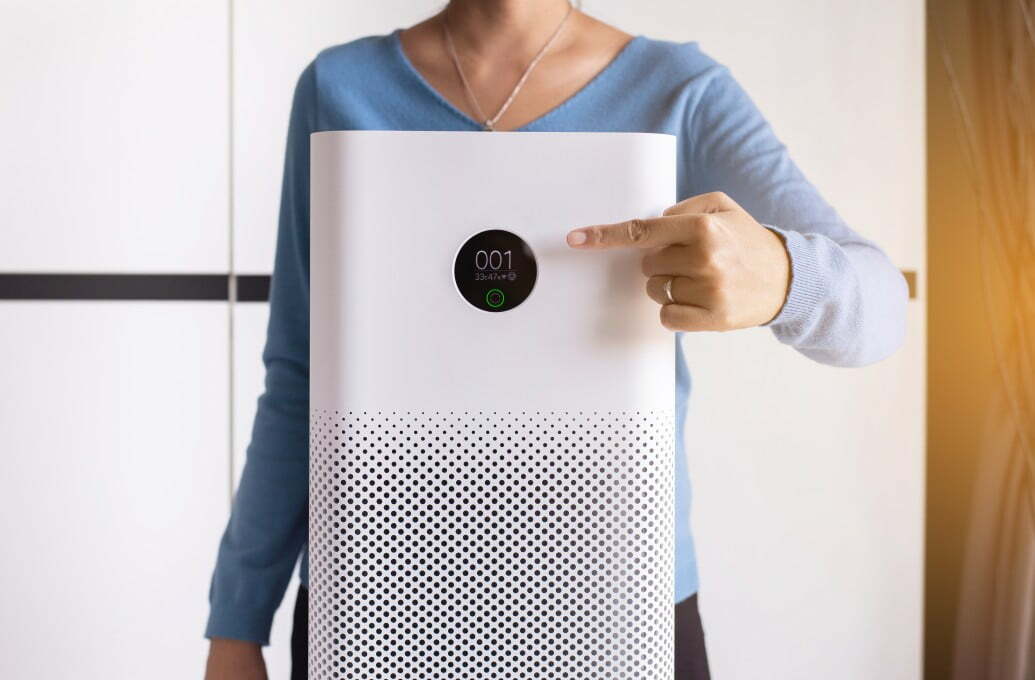
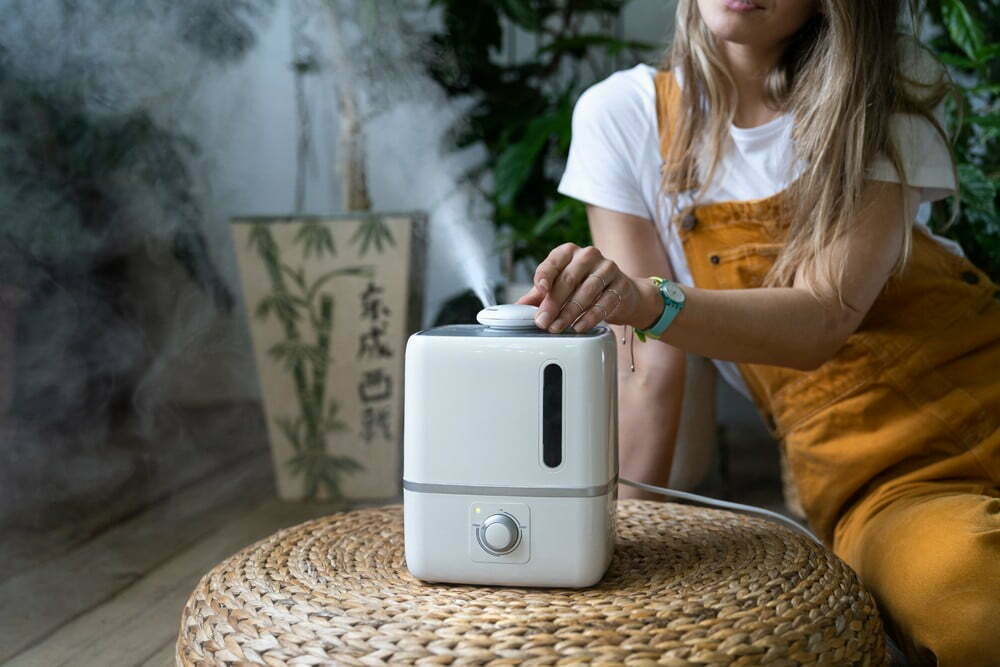
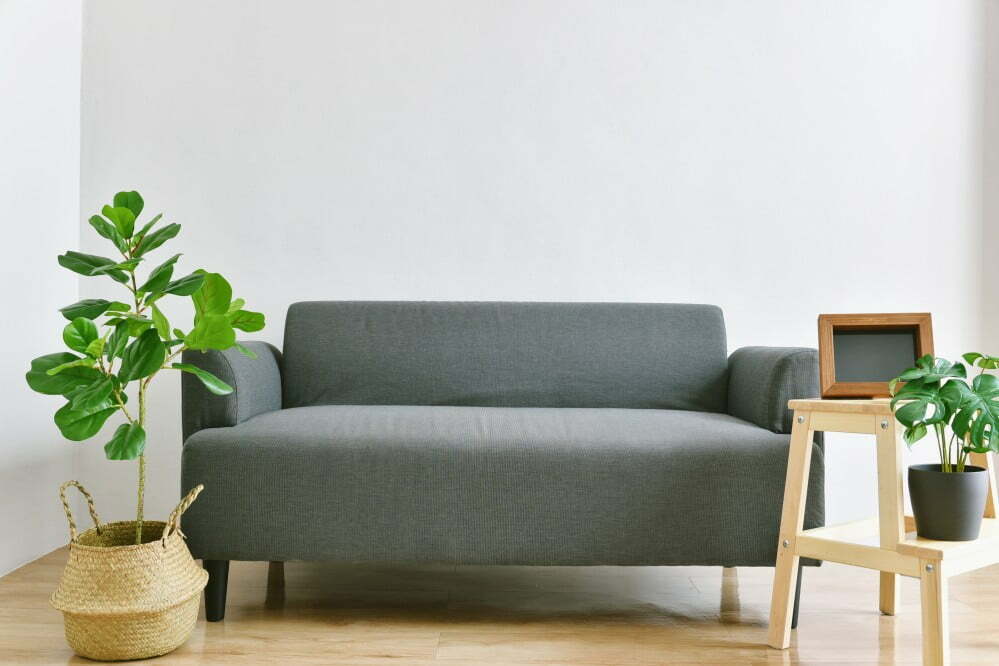

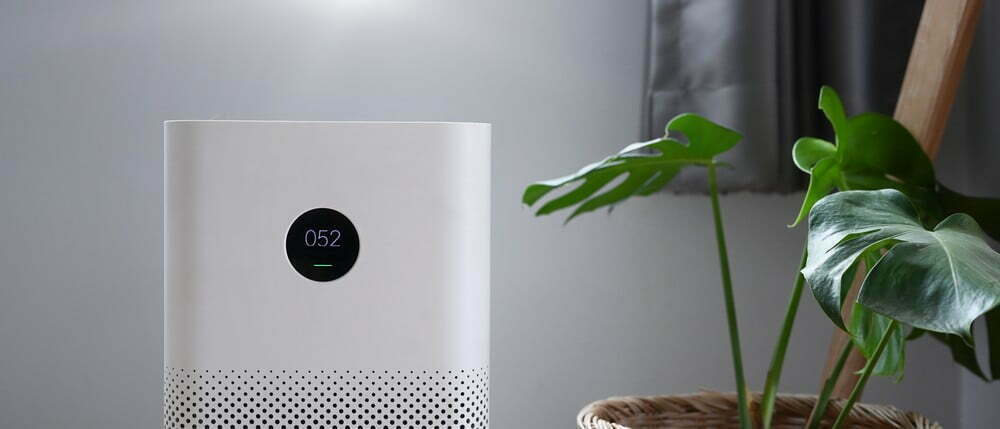
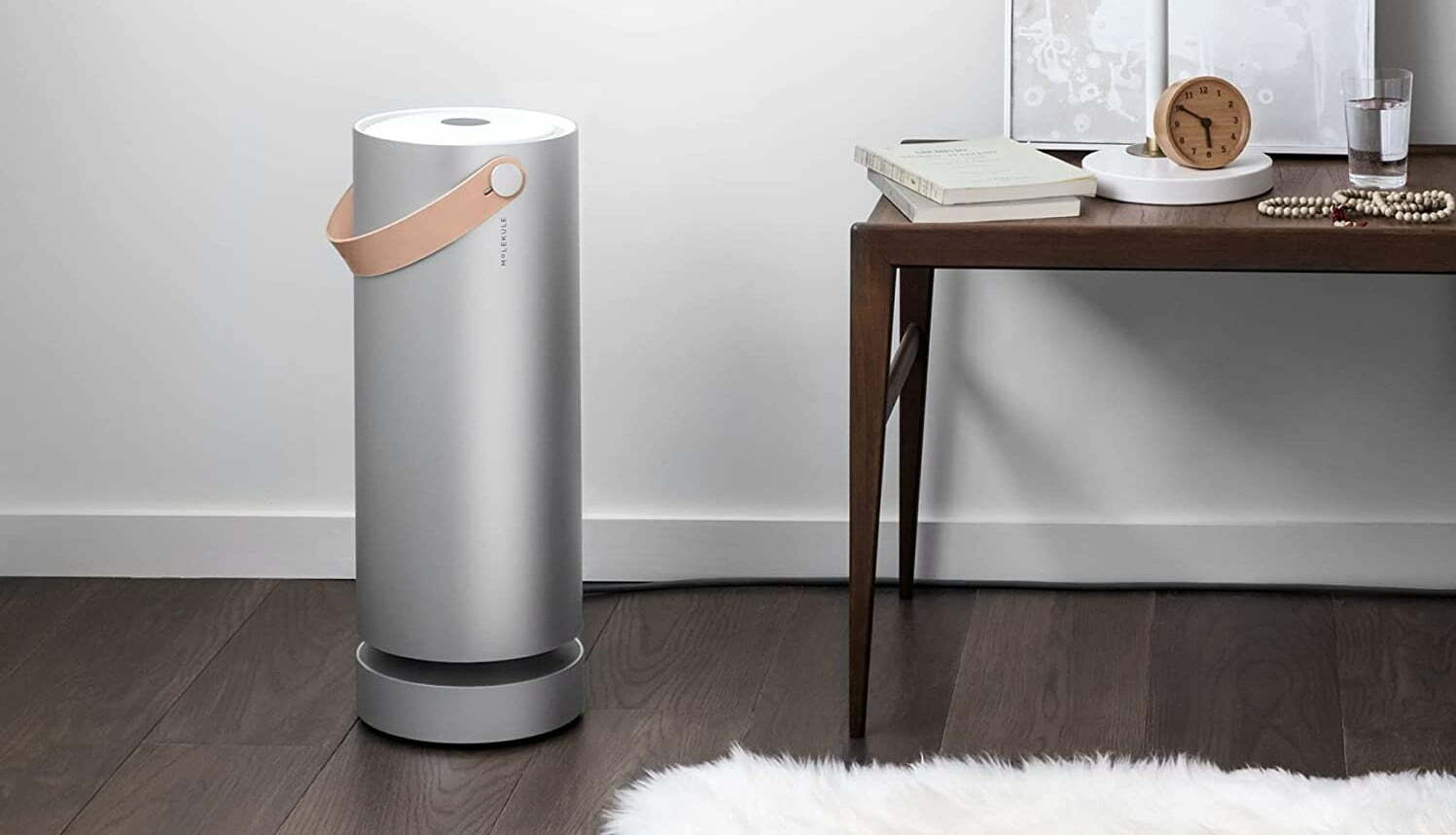
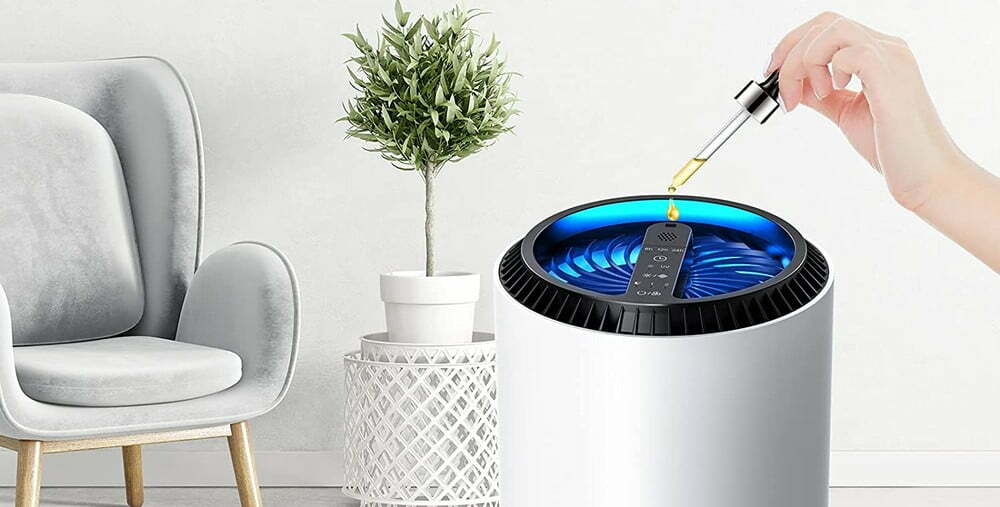
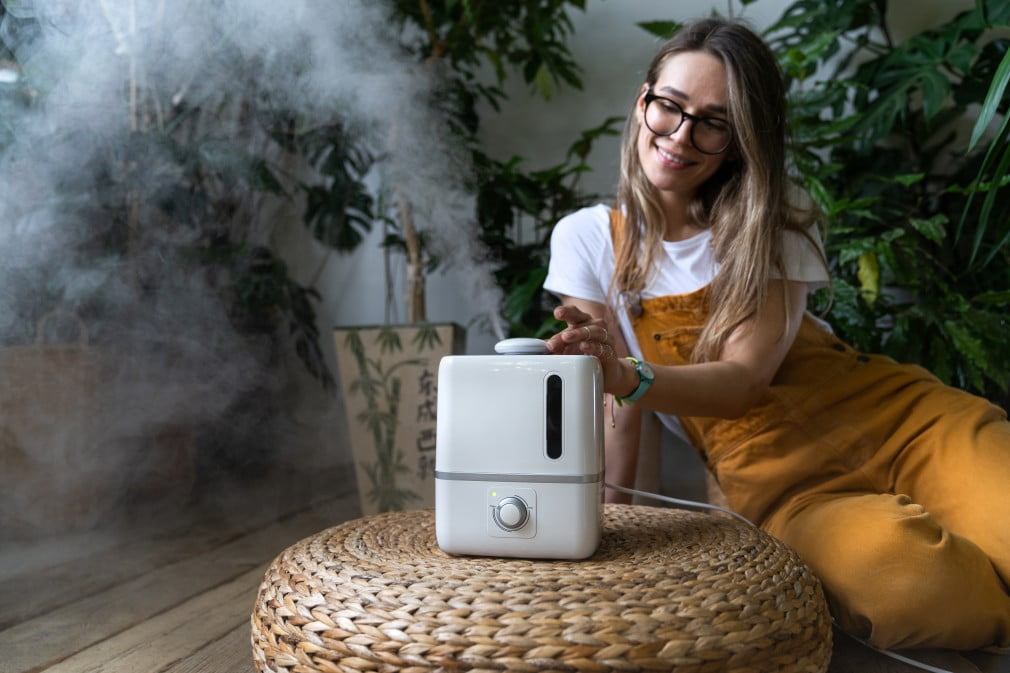
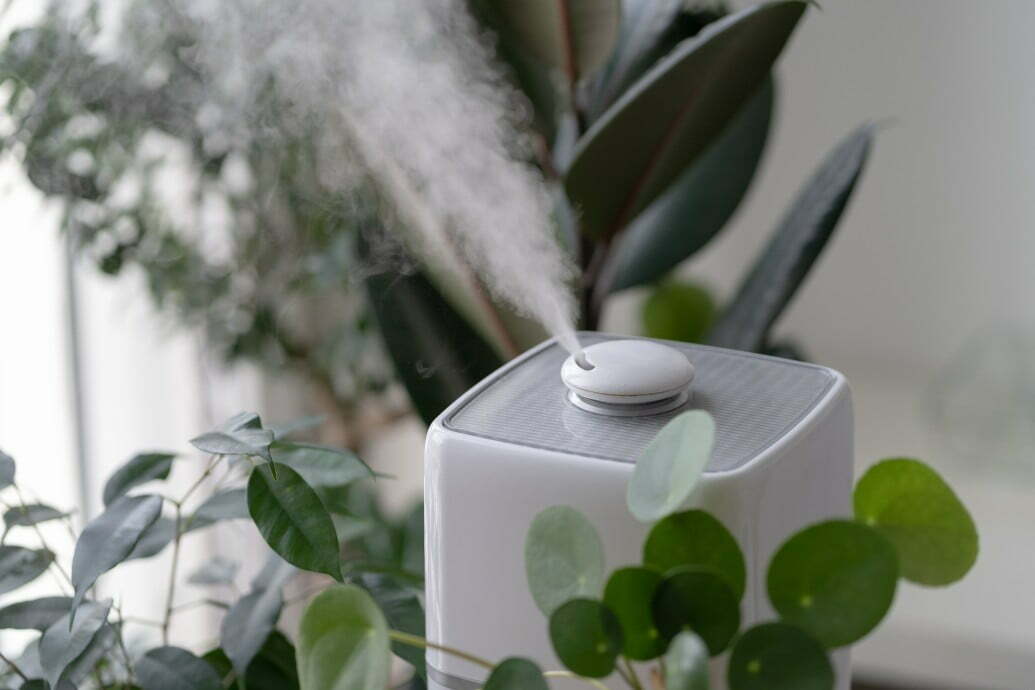
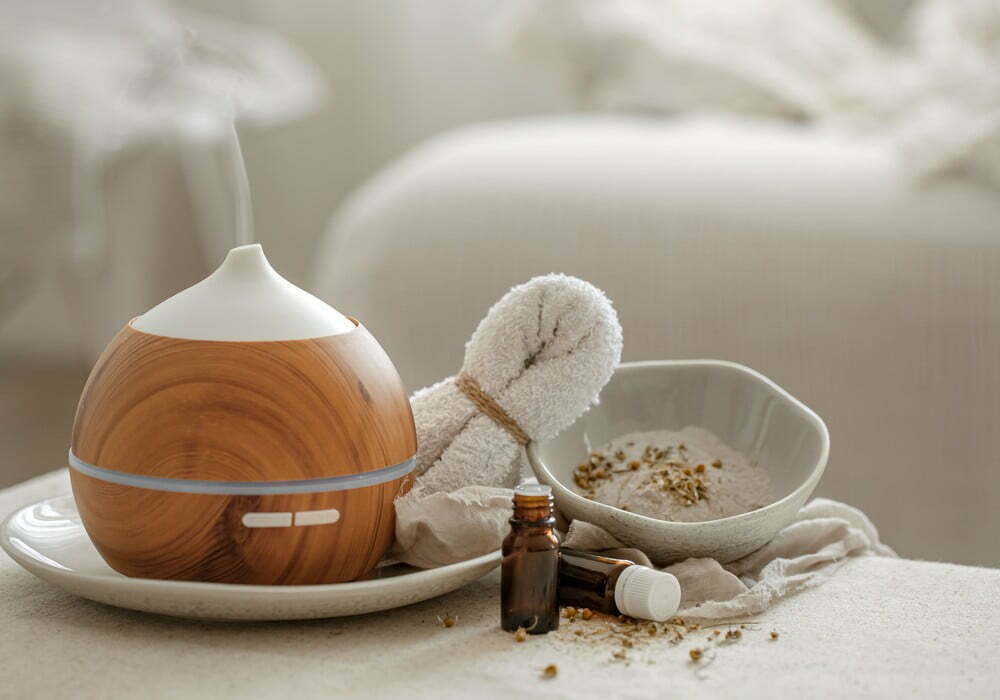
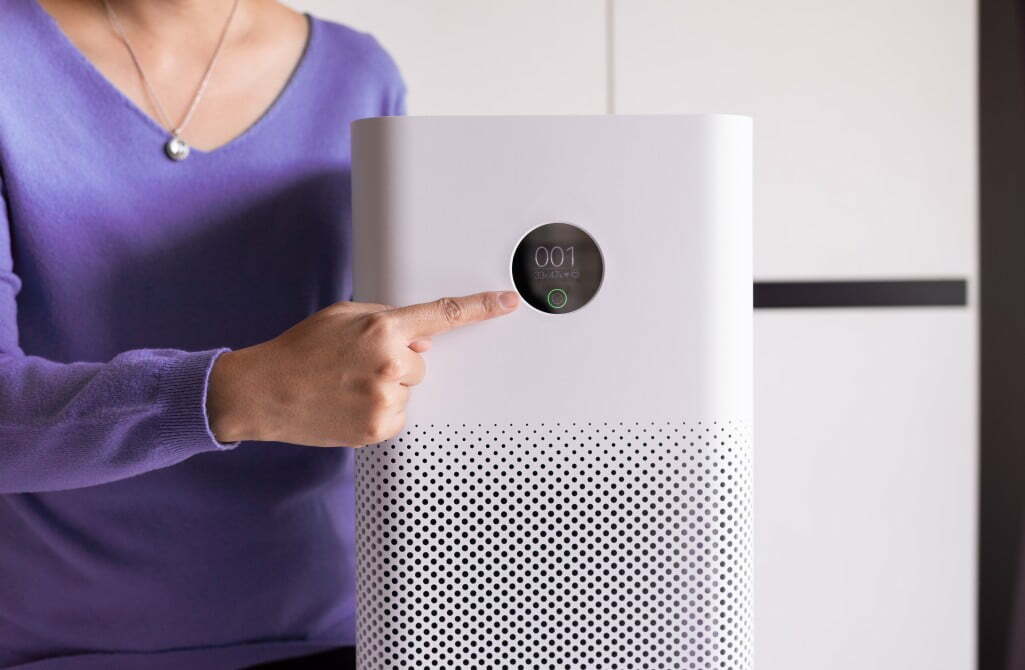
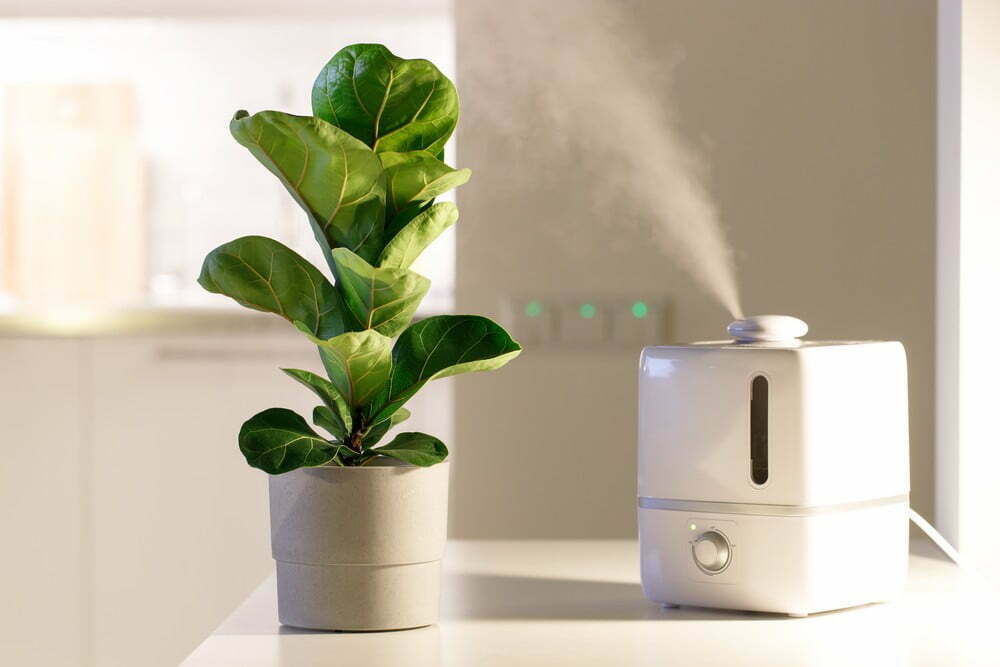
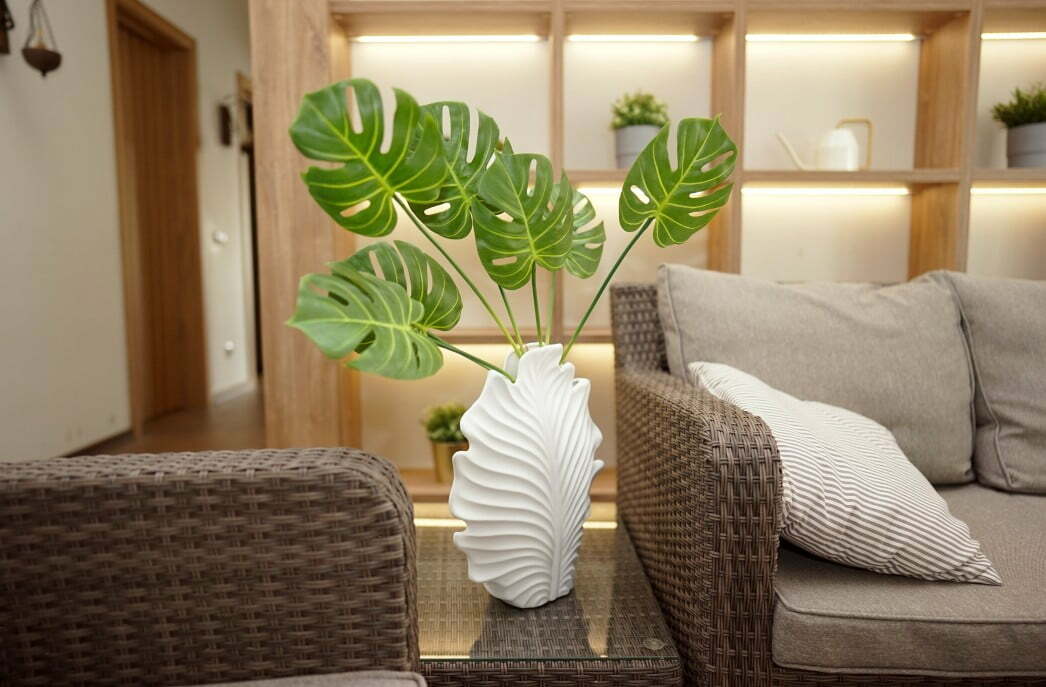
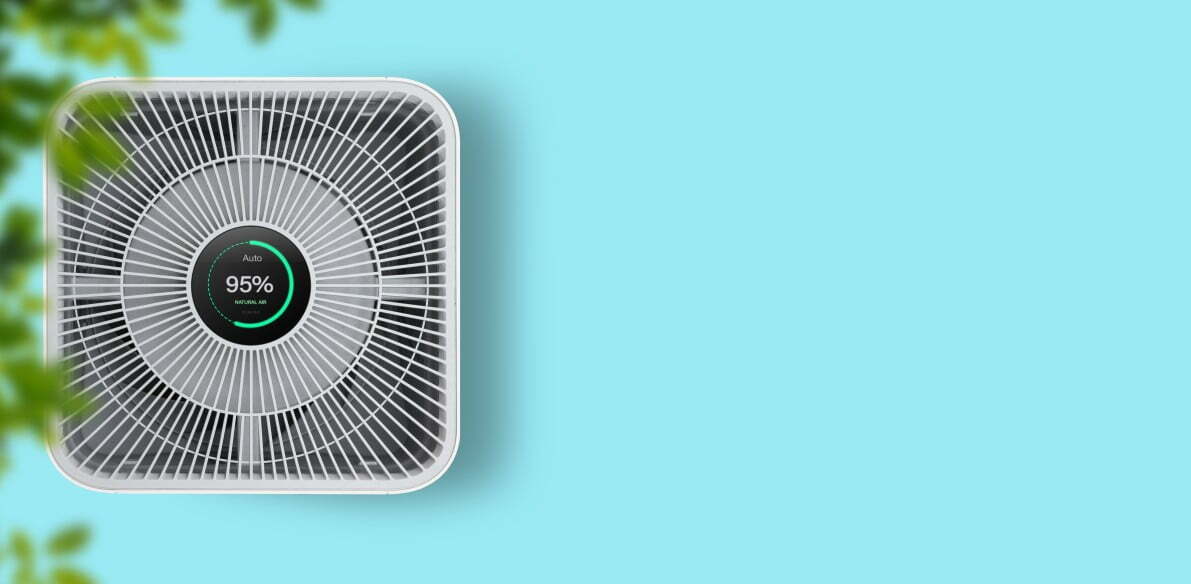
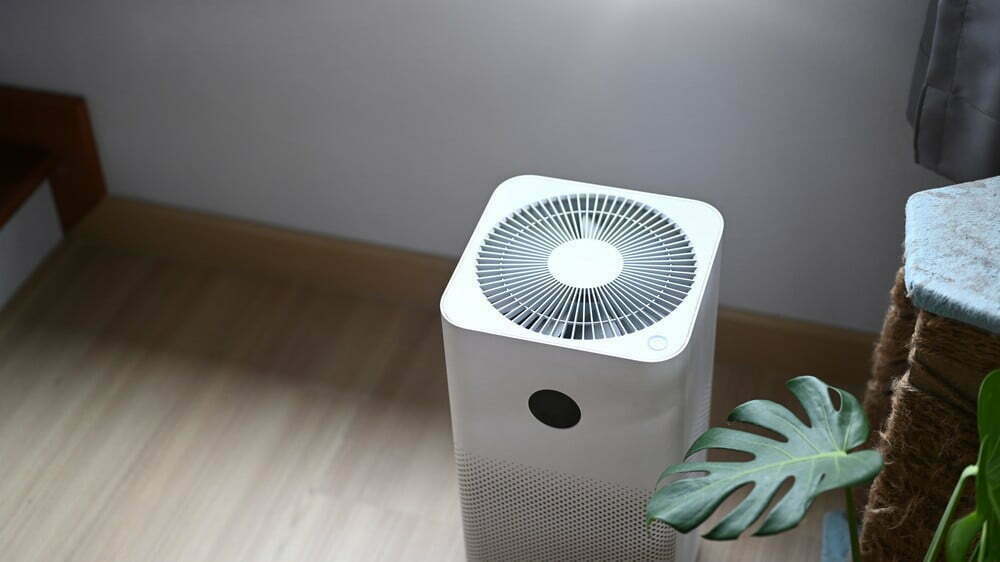
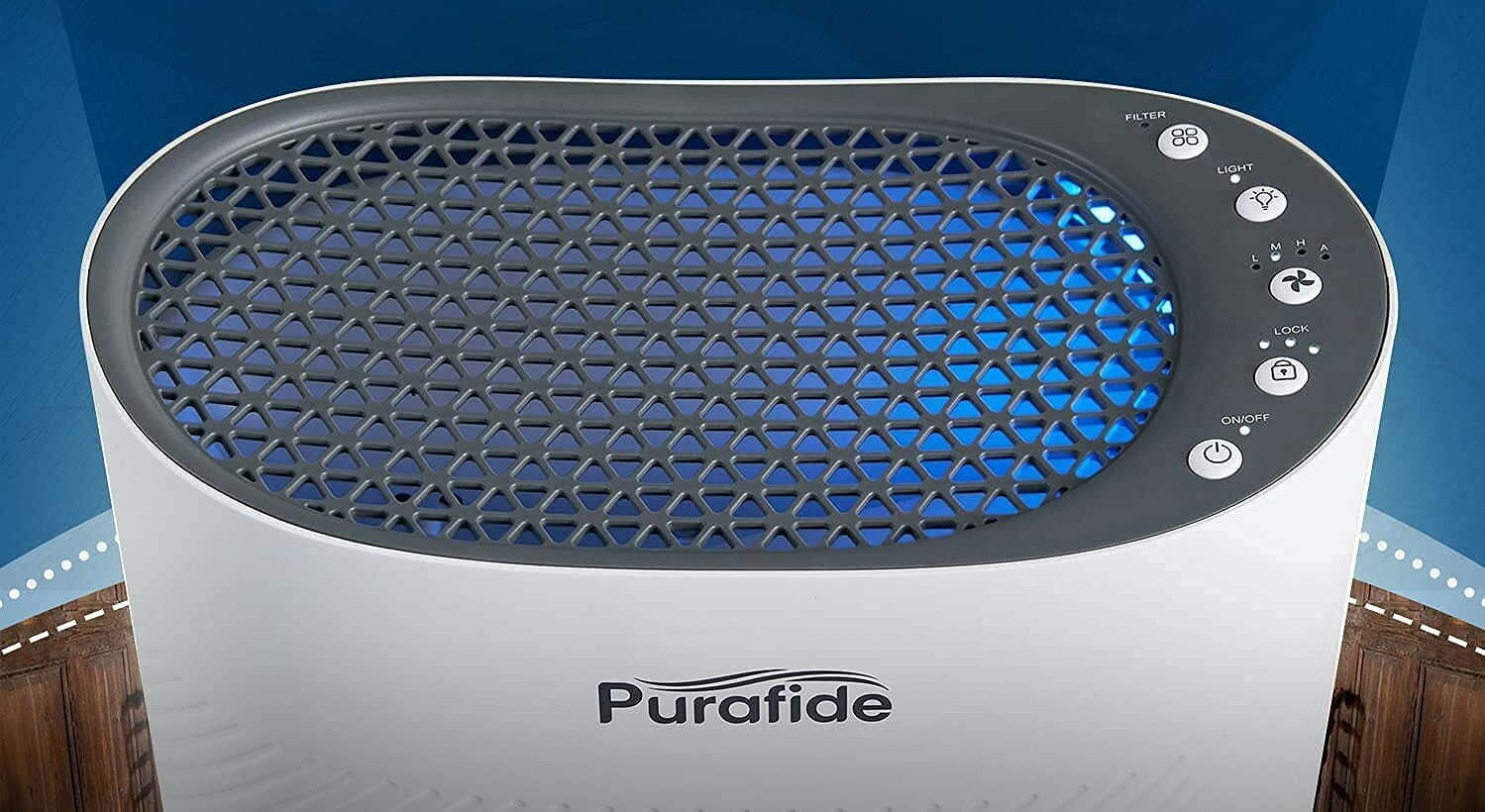
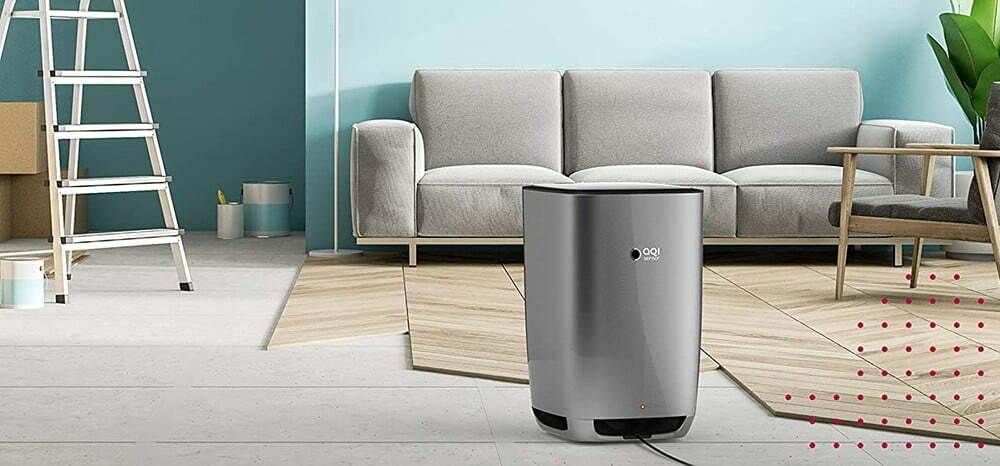
![Best Air Purifiers for VOCs and Formaldehyde in [year] 27 Best Air Purifiers for VOCs and Formaldehyde in 2026](https://www.gadgetreview.dev/wp-content/uploads/best-air-purifier-for-vocs-and-formaldehyde-image.jpg)
![Best Air Purifier in [year] ([month] Reviews) 28 Best Air Purifier in 2026 (January Reviews)](https://www.gadgetreview.dev/wp-content/uploads/Honeywell-True-HEPA-Allergen-Remover-HPA300-e1475603569442.jpg)
![Best Air Purifiers for Dust in [year] 29 Best Air Purifiers for Dust in 2026](https://www.gadgetreview.dev/wp-content/uploads/best-air-purifier-for-dust-image.jpg)
![Best Honeywell Air Purifiers in [year] 30 Best Honeywell Air Purifiers in 2026](https://www.gadgetreview.dev/wp-content/uploads/best-honeywell-air-purifier-image.jpg)
![Best Germicidal Air Purifiers in [year] 31 Best Germicidal Air Purifiers in 2026](https://www.gadgetreview.dev/wp-content/uploads/best-germicidal-air-purifier-image.jpg)
![Best Filterless Air Purifiers in [year] 32 Best Filterless Air Purifiers in 2026](https://www.gadgetreview.dev/wp-content/uploads/best-filterless-air-purifier-image.jpg)
![Best Levoit Air Purifiers in [year] 33 Best Levoit Air Purifiers in 2026](https://www.gadgetreview.dev/wp-content/uploads/best-levoit-air-purifier-image.jpg)
![Best Air Purifiers for Smoking Weed in [year] 34 Best Air Purifiers for Smoking Weed in 2026](https://www.gadgetreview.dev/wp-content/uploads/best-air-purifier-for-smoking-weed-image.jpg)
![Best Quiet Air Purifiers in [year] 35 Best Quiet Air Purifiers in 2026](https://www.gadgetreview.dev/wp-content/uploads/best-quiet-air-purifier-image.jpg)
![Best Desktop Air Purifiers in [year] 36 Best Desktop Air Purifiers in 2026](https://www.gadgetreview.dev/wp-content/uploads/best-desktop-air-purifier.jpg)
![Best Dyson Air Purifiers in [year] 37 Best Dyson Air Purifiers in 2026](https://www.gadgetreview.dev/wp-content/uploads/best-dyson-air-purifier.jpg)
![Best Air Purifiers for Dorm Room in [year] 38 Best Air Purifiers for Dorm Room in 2026](https://www.gadgetreview.dev/wp-content/uploads/air-purifier-for-dorm-room-1.jpg)
![Best Air Purifiers for Office in [year] 39 Best Air Purifiers for Office in 2026](https://www.gadgetreview.dev/wp-content/uploads/best-air-purifier-for-office.jpg)
![Best Air Purifiers for Basement in [year] 40 Best Air Purifiers for Basement in 2026](https://www.gadgetreview.dev/wp-content/uploads/best-air-purifier-for-basement.jpg)
![Best Air Purifiers For Odor in [year] 41 Best Air Purifiers For Odor in 2026](https://www.gadgetreview.dev/wp-content/uploads/best-air-purifier-odor.jpg)
![10 Best Personal Air Purifiers in [year] 42 10 Best Personal Air Purifiers in 2026](https://www.gadgetreview.dev/wp-content/uploads/best-personal-air-purifiers.jpg)
![10 Best Plug In Air Purifiers in [year] 43 10 Best Plug In Air Purifiers in 2026](https://www.gadgetreview.dev/wp-content/uploads/best-plug-in-air-purifier-image.jpg)
![10 Best Whole House Air Purifiers in [year] 44 10 Best Whole House Air Purifiers in 2026](https://www.gadgetreview.dev/wp-content/uploads/best-whole-house-air-purifier-image.jpg)
![10 Best Large Room Air Purifiers in [year] 45 10 Best Large Room Air Purifiers in 2026](https://www.gadgetreview.dev/wp-content/uploads/Coway-Airmega-200M-Large-Room-Air-Purifier-900x900-1.png)
![10 Best UV Air Purifiers in [year] 46 10 Best UV Air Purifiers in 2026](https://www.gadgetreview.dev/wp-content/uploads/best-uv-air-purifier.jpg)
